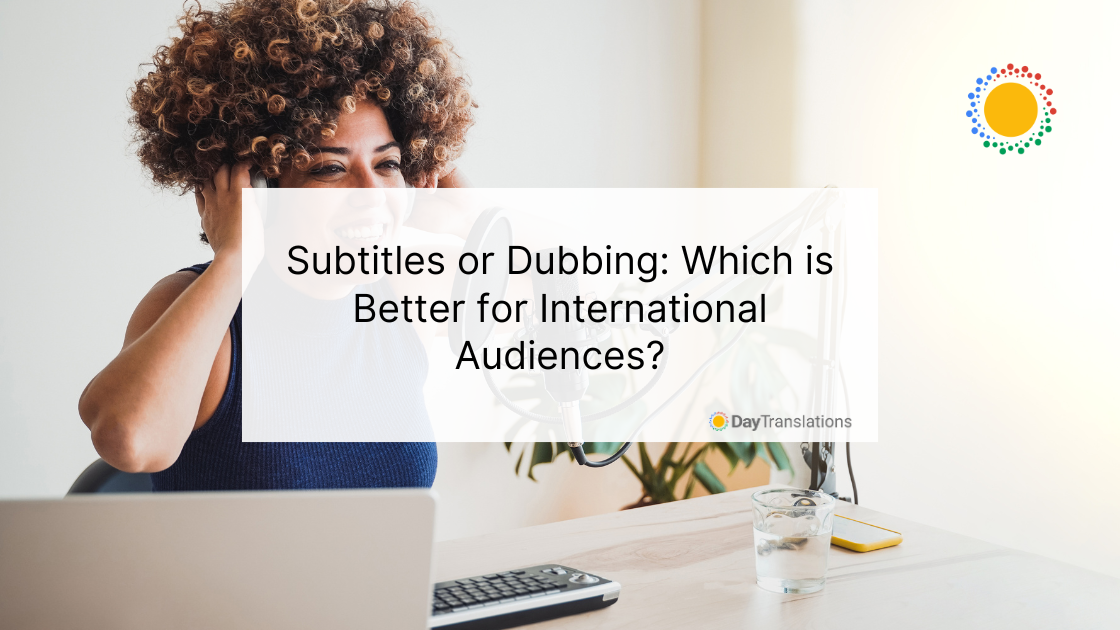According to Nelson Mandela, “If you talk to a man in a language he understands, that goes to his head. If you talk to him in his language, that goes to his heart.” Believe it or not, this quote is absolutely relevant to your marketing and branding strategy. Why? Because by “speaking” the language of your customers, you get their heart, and by getting their heart, you get their loyalty and trust for your brand. This is where localization comes in. In this article, we’ll dive deep into what localization is, its benefits, and how it can help adapt your brand to your customers.
Let’s get started!
What Is Localization?
Localization is the process of adapting content or products to fit the language, preferences, or culture of a target market located in a specific region or place.
Localization can be applied through various aspects of your marketing or branding strategy, including:
- Language – translating texts in your marketing materials, websites, or e-commerce platforms to the native language of your target audience. Some examples are providing localized subtitles for your marketing videos, creating localized versions of your website, or changing some of your content to fit local language better (ex., the “Share A Coke” campaign featured localized names like María or Jakub to fit each country better)
- Product – creating new products or adapting existing ones to fit local culture or resources. One example is KFC adapting their menu to fit local tastes, such as creating Spicy Sichuan Chicken for China or Paneer Zinger for India.
- Presentation – adapting your visuals, illustrations, color palette, or font of your marketing collateral to suit your local audience’s taste.
- Distribution – focusing on platforms that are regionally popular to your target market, such as Weibo, QQ, Kakao Talk, Naver, or Line.
- Events – marketing for country or region-specific events, such as Lunar New Year or Diwali Festival.
What Are The Benefits of Localization?
There are many benefits including:
Increased Global Appeal
Localization offers a way to make your brand more globally popular. You won’t be tied down to just one country if you localize your content or products to fit a global market. For example, a Japanese company providing English or Italian subtitles will open them up to a bigger audience instead of just being limited to a Japanese audience. This will also lead to higher revenue down the line.
Localization also makes it easier to penetrate global markets. By aligning your products to fit local cultures and traditions, countries will be more accepting of your brand. This is even more important for countries with a significantly different culture than yours.
One example is McDonald’s. They localize their menus to fit local tastes and incorporate regional cuisines. This results in vegetarian burgers for India, sakura-themed products for Japan, or croissants for France.
Improved Customer Satisfaction
Localizing content or products can greatly help improve a customer’s experience with your brand.
By localizing your products, you meet your customer’s tastes, preferences, and needs. While localizing content – from your marketing videos to your website to customer support FAQs – helps your customers have an easier time navigating your brand. This results in customers that feel appreciated and valued, leading to higher customer satisfaction.
One example is Netflix. Aside from providing localized subtitles or localized dubbing for their shows, they also have different shows available depending on which country you are in. These shows are geared toward local tastes and trends. This gives a more “personalized” option for their customers, leading to a better watching experience.
Solidifies Your Branding
Branding is not just built from your logo design or color palette. It’s also built through a consistent brand voice (the tone, style, and language of your written communications) and a compelling brand strategy (the overall strategy of how you will present your brand’s story and brand identity to your customers).
Localization can help in both. You can use localization to ensure that your brand voice will remain consistent no matter which language you are using. It can also help in ensuring that your brand’s story and all its nuances will be relayed properly to your target audience.
More Positive Brand Perception and Reputation
Localization can also help in building a positive brand image. Having a localization strategy in place shows that your brand is respectful of cultural traditions and customs, which endears you to customers as they will feel more seen and heard.
Localization can help in avoiding any issues or backlash with cultural insensitivity. You’ll also avoid any mistranslations or misunderstandings that may arise from language barriers.
Improved Accessibility
Localization makes content accessible, especially for those with hearing, visual, or physical impairments. This comes in the form of subtitles, localized subtitles, localized dubbing for videos, localized transcripts, or localized alt texts on websites. This helps your customers who use assistive technology for their impairments.
The Caveat of Localization
While we can see that localization has a lot of benefits, there are still some challenges that come with it.
A major one is budget. Localization will take a lot of time, money, and manpower to do. It requires investing in thorough market research, in translation services, or even new product development. While these are easy for big brands, it will be a challenge for small businesses that do not have the same amount of resources.
Next are technological challenges. It may be difficult to implement localization without a dedicated team of IT specialists or developers. This even happened to a Windows 10 upgrade by Microsoft. Users ran into an issue where they experienced crashes and keyboard layout issues when they chose a language aside from English. If a huge company like Microsoft can still run into these issues, what about smaller companies?
Lastly is maintaining quality and consistency. Can your business keep up with the demand for localization? Can you ensure that your localization will properly translate all the context and nuance, and not just a “translation” that was done haphazardly just to say that you localized it? For localized products, can you still maintain your brand’s identity and not get watered down by adjusting to local tastes or preferences?
How To Implement Localization in Your Marketing Strategies
While there are challenges that you can encounter with localization, it is still an important strategy to incorporate in your marketing and branding efforts. In fact, 84% of businesses say that they have increased revenue after their localization efforts. If you haven’t hopped on this strategy yet, you are missing out.
You can do it through the following methods:
With AI
There are many AI tools available that can help you with creating content or with localization.
If you need localized translations, you can look into tools like DeepL, Google Gemini, Copy.Ai, or Smartling.
If you have video content, there are AI subtitle generators like Veed or Filmora. They can create subtitles in over 70+ languages. There are also AI localized dubbing tools like Speechify or Rask AI. And if you need “local” presenters for your videos, apps like Synthesia and Collosyan can create a virtual human presenter that can look and speak like a person from a specific country.
AI tools cut down the time, budget, and manpower needed for localization as they use machine learning algorithms to quickly provide translated texts. However, the quality and accuracy of the text can still be an issue and may need further refinement to ensure a high-quality translation.
With Professional Translators
Nothing beats the quality of professional translators, which is why it’s still the top choice for brands and businesses. As these are humans with extensive experience and knowledge, you are ensured that the content will be properly translated to maintain the nuance and style that you are aiming for. You can look into our services here at DayTranslations if you are looking for professional certified translators.
With Local Language and Cultural Experts
Consulting local experts can greatly help in ensuring the accuracy and relevance of your localized content. Aside from the language, they can help in adjusting your product and content to fit local traditions, customs, culture, and trends.
Hiring a local team for a country that you are targeting can also help in ensuring that your strategy will be better implemented. After all, they are more attuned to what your target audience wants as they are familiar with the culture. The same idea goes for working with local celebrities and influencers that your audience will know compared to using foreign stars.
Conclusion
Localization is not just a “nice to have” anymore. It’s a necessary strategy if you want to appeal to a global audience, grow revenue, as well as form stronger connections with your customers.
By speaking the language of your customers, you will position yourself as a brand that truly cares and adapts to your customers, which can help you forge stronger and lasting relationships with them.












Sorry, the comment form is closed at this time.